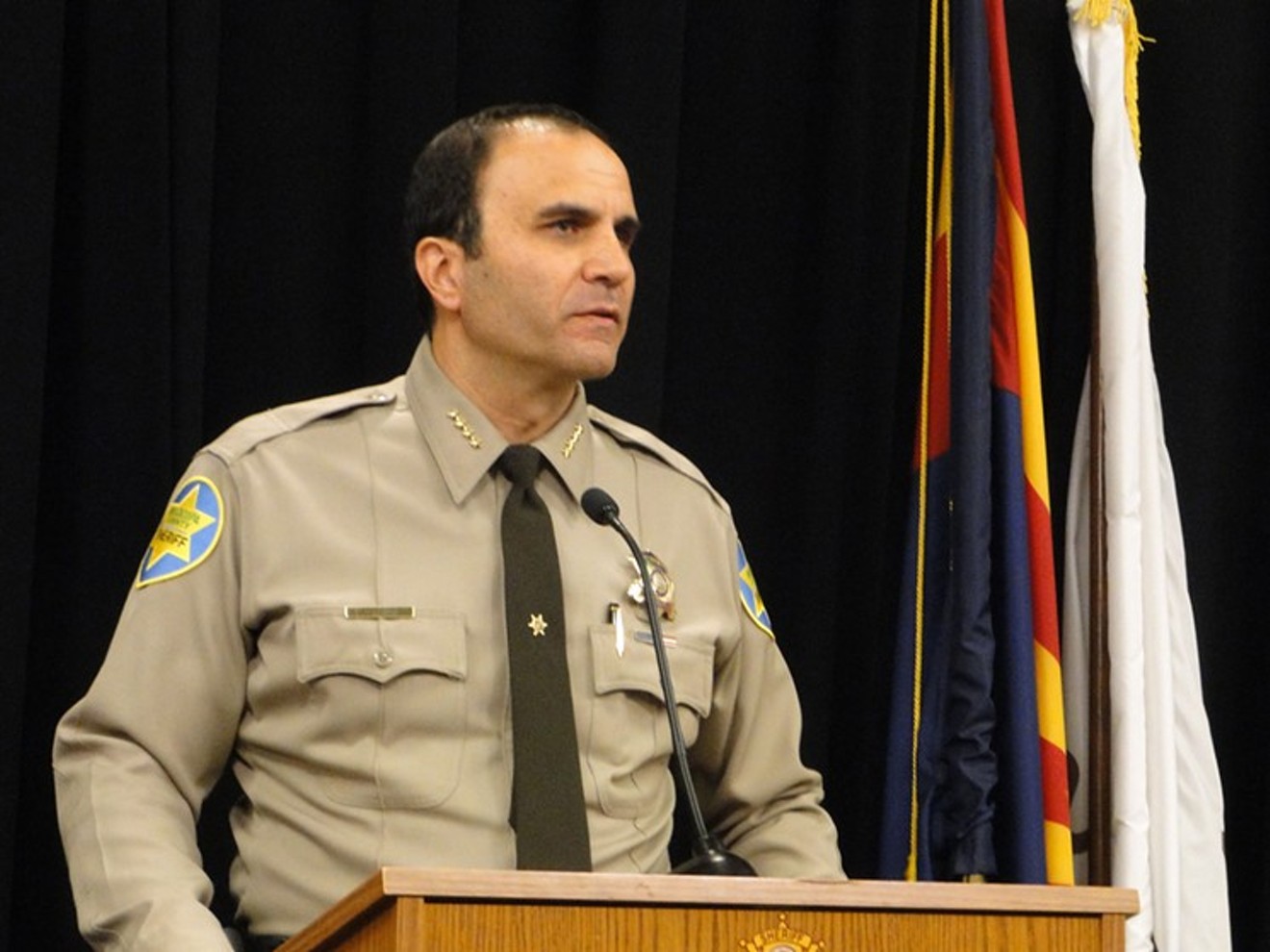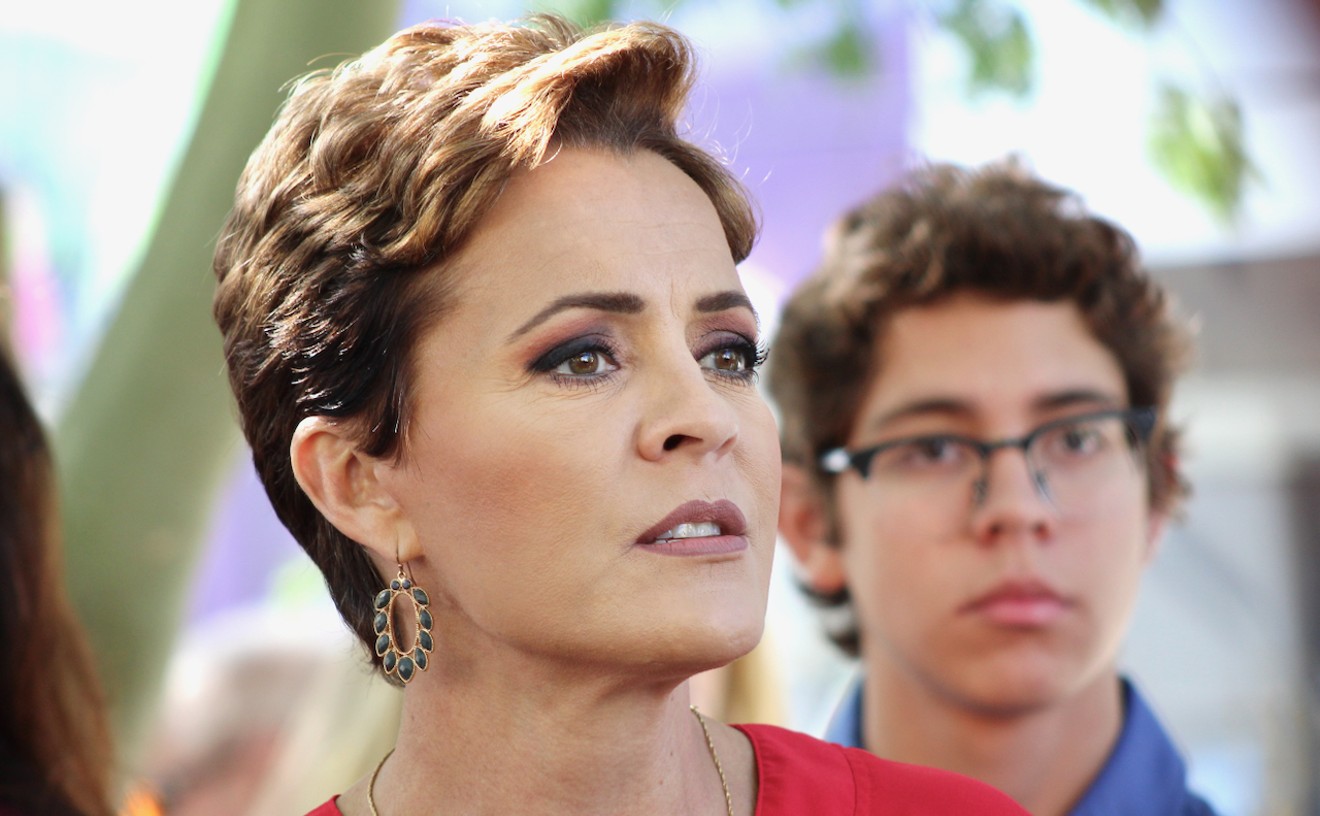The status conference stems from a request last week by plaintiffs, including the American Civil Liberties Union of Arizona, in an ongoing lawsuit against the Maricopa County Sheriff’s Office (MCSO). The case dates back to the days of former Sheriff Joe Arpaio and his notoriously discriminatory enforcement of the Latino community.
The meeting, which is scheduled for November 26, comes after a rocky month that highlighted gaps in the office's commitment to combating bias and building trust with the Latino community.
An October Gathering
In 2013, in the case Manuel de Jesus Ortega Melendres v. Arpaio, a federal judge found that the sheriff’s office, then under Arpaio, systematically violated the rights of Latino people in Maricopa County by subjecting them to racial profiling.
Because of this, MCSO must, by court order, follow several specific steps to address the agency's disparate treatment of Latino residents.
Penzone, who took office in 2017, is now tasked with heading up these efforts, including regularly studying racial bias in deputies’ traffic stops and holding recurring community meetings to update the affected Latino community on MCSO's progress.
The Latino community members involved in the original suit, as well as the organizations that represent them, are concerned about Penzone’s ability to do both.
Penzone lost his ability to host the community meetings earlier this year, after U.S. District Court Judge G. Murray Snow ruled he’d failed to conduct them at locations and times that were accessible to members of the Latino community most affected by Arpaio's unconditional policing. But Penzone is still required to attend these meetings, and he must notify the court monitor at least 30 days in advance if he cannot make it.
At MCSO's most recent community meeting, held on October 15, over 100 people gathered at a Maryvale community center to hear from the sheriff. The majority of attendees were Latino.
Entire families congregated in the crowded space, with mothers holding toddlers or stepping outside as babies started to cry. Many spoke only Spanish, and several told Phoenix New Times they'd never attended an MCSO community meeting before.
"The conditions could not have been better for Defendant Penzone and MCSO personnel to engage meaningfully and substantively with the Plaintiff Class and to begin restoring trust,” the plaintiffs said in their motion for a conference, which they filed on October 30.
But Penzone missed this opportunity, the plaintiffs said.
Penzone was, in fact, at the meeting, but left early, much to the confusion of court monitors, community members, and even several MCSO officers. When the monitor called the sheriff to speak at the end of the meeting, someone in the back announced he'd ducked out early, much to the chagrin of audience members.
“Other MCSO employees jumped on stage to fill the gap, but they too seemed surprised by this turn of events, and the Sheriff’s absence at this crucial point in the meeting was clearly considered to be an affront to the community members who were present,” the motion stated.
On November 1, the judge overseeing the case granted the plaintiffs' request to hold a conference, which Penzone must attend.
Penzone's early exit sparked concern with other organizations, including an independent five-member Community Advisory Board created as a result of the Melendres case. In a letter to the court monitor the next day, they suggested that Penzone had snubbed not just the Latino community, which was "completely shocked and appalled," but the court as well.
Plaintiffs alleged, too, that Penzone's team was ill-equipped that night to answer questions about the office's use of body cameras. They also claimed that he denied the findings of his own agency.
Its most recent traffic study, which was released on September 30 after a six-month delay, found that even under Penzone’s tenure, MCSO continues to have racial bias in its traffic stops. The sheriff had a data scientist from CNA, the vendor that helped conduct the study for the agency, present the results at the meeting.
CNA's representative said that data showed that in Maricopa County, Latino and black residents were more likely to be searched, ticketed, and arrested than other residents. But she also asserted that “the analysis was not able to uncover actual evidence of bias.”
The statement directly contradicted the data, plaintiffs said, and made it appear like Penzone, through an outsourced spokesperson, was trying to minimize the gravity of the study's results.
“Each of those traffic stops represents a person that was stopped, arrested, cited, held on the roadside longer than they should have been, or taken to jail. When you’re looking at 25,000 traffic stops, that’s a lot of people,” Molly Brizgys, attorney for ACLU of Arizona, said.
“MCSO worked hard on making sure they collected the right data in order to draw this conclusion," Brizgys added. "We hope that MCSO is as concerned about these findings as we are. It’s their study, and it’s valid. Now they should be taking steps based on those findings — in real time.”
The Judge's Meeting
The upcoming status conference will cover both the bungled meeting and the traffic study. Penzone and MCSO will have a chance to respond to the plaintiffs' concerns and the judge’s questions.
In the ongoing conversation about how the office must reduce racial bias in its enforcement, mandated conferences like these are not uncommon — Penzone met with the judge, the court monitor, county officials, DOJ representatives, and plaintiffs in the case in April to iron out similar problems.
But this particular meeting differs in that it will center around traffic enforcement conducted solely during Penzone’s tenure as sheriff. It is also the first since he lost privileges to host community meetings yet still managed to draw ire from the crowd with his early absence.
As the 2020 election nears, Penzone's response to questions about his commitment to combating racial bias grows all the more important.
During Penzone’s campaign in 2016, in which he defeated 25-year incumbent Arpaio, he ran largely on the promise to reduce taxpayer dollars spent on lawsuits and to “renew relationships with the entire community.”
But MCSO will continue to spend millions of dollars annually as long as it remains out of compliance with Melendres — the agency allotted $26 million solely to Melendres efforts in 2018 — and doubts plague the sheriff's ability to renew relationships with the community.
Meanwhile, plaintiffs just want his office to change its practices.
“We want the agency to course-correct right away,” Brizgys, the ACLU of Arizona attorney, said. “In terms of an action plan, we already have it — it’s the court order. We hope that the status conference helps the agency get there.”
MCSO declined to comment on the upcoming status conference, but the office plans to file a response with the court on the matter, according to an MCSO spokesperson.
This story has been updated with new language to reflect the Latino community's preferences.









